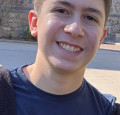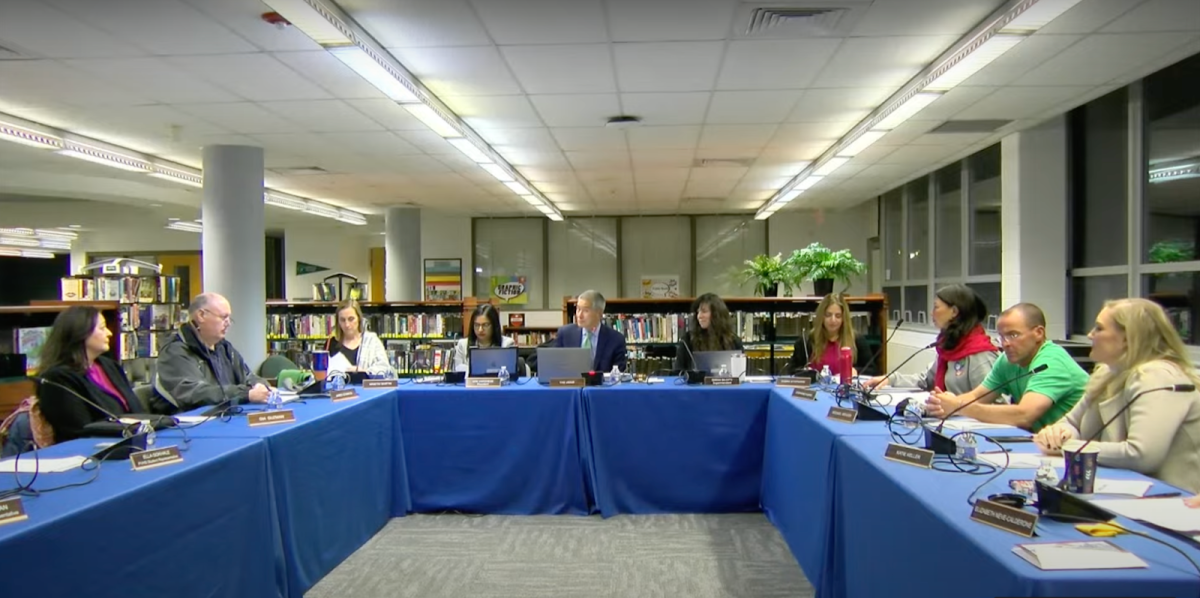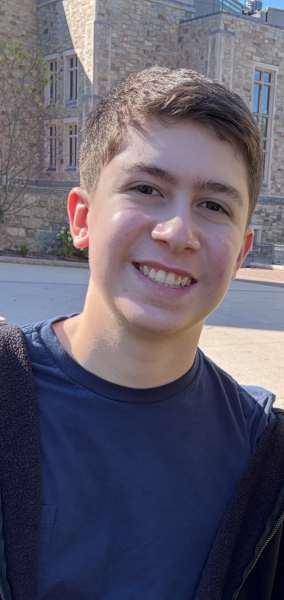On Saturday morning, at their annual retreat, the Pascack Valley Regional High School District Board of Education developed new plans, discussed expectations, and addressed future goals.
At the start of the meeting, BOE Attorney Vittorio LaPira presented a report on Board Ethics, referencing the district’s ethical policies, the role of board members, and board governance. He covered questions from any members who are also educators, confirming that they still must uphold superior regulatory standards in their workplace.
“You are here to ensure that the schools are well run, not running the schools, not managing the day to day operations…As a board member, you’re exercising [an extent of] … authority,” said LaPira.
In his statements, LaPira expressed the board’s role as an entity. The BOE has the responsibility to act in the best interests of the school, avoiding bidding for special interest groups. He asserted that the main focus must be on making sure the school is well run and that the board maintains confidentiality with district measures, setting clear standards for BOE members to follow.
LaPira concluded his statements when he provided examples of recent school ethics commission decisions, explaining any board consequences for overstepping boundaries and abusing authoritative power. He expressed limitations for their relationships with Hills faculty and staff, emphasizing group decision making over individual preferences.
“Not to promise that we’re going to take care of something…[District members] think an individual board member can do whatever and change policies…We act as a whole,” he mentioned.
BOE President Gini Varghese then introduced the 2025-2026 Board Goals, where she instructed the BOE members to pair up and generate a plan to modify last year’s goals or to recommend new ones. In this activity, she also planned to clarify any confusion about previous policies, bridging educational gaps. Then, after their discussion, they all reconvened to consolidate thoughts.
BOE member Michael Weaver kicked off their conversation and introduced considering more referendums for financial auditing. After it raised a few questions, Weaver clarified: “We’re going to look at what one school has over the other school…targeting things to ensure they are equitable.. For both facilities.”
Regarding struggles, the board commonly spoke about resolving past matters by addressing the problems and proposing solutions to boost progress, ensuring the maintenance of an ideal state of education. They achieved satisfaction upon recognizing weak points and assumptions holding back change.
Another relevant speaking point was when BOE member Stephanie Huang mentioned that the district’s rankings have recently declined due to changes in the evaluation system. The board processed her claims and proposed questions on whether these lists are reliable categories of scholarly ability.
“Perhaps a goal for 2026 is to think about the why…why is this [ranking change] happening…You can’t fix something unless you know the root cause of it,” said Varghese.
Board member James Stankus confirmed Huang’s hesitations, suggesting that recent changes in Hills’ scheduling format have negatively impacted overall student performance in district wide assessment. He implied no exact method to confirm this theory due to countless outside factors, like student preference, or tampering results.
“Maybe it’s a question of block scheduling vs periods again; there are so many variables contributing to ranking,” said Stankus.
Other members supplemented when they decided to reflect on which ranking websites are the most accurate, mentioning U.S. News, Niche, and Forbes. All of these trustworthy sources represent unique systems for assessing education, practicing overall individual determination. Due to variation, the board added that these inconsistencies may change annually, leading the criteria to focus on timely, relevant aspects over time.
One example of a change that they reiterated was improving school wide achievements for Individualized Education Program (IEP) and 504 plan students, in addition to social emotional learning (SEL) standards. Essentially, they hoped to further work on expanding accommodations in an accessible environment.
Board member Katie Keller proposed further developing the curriculum to normalize mental health priorities. She added River Vale’s integration into frequent educational periods as ideal. The district should, therefore, provide increased options to all students.
In agreement, BOE member Elizabeth Calderone supported Keller’s approach but instead focused on a student driven view when decompressing from stressful situations. She wanted to ensure that everyone feels comfortable attending school despite facing challenges.
“Making sure [students are] equipped to be successful human beings after they graduate…Should there be clubs where they decompress…in regards to their mental health,” Calderone revealed.
As a way to conclude their annual meeting, the board provided logical steps regarding the search for a new superintendent, new mental health orientated activities, cell phone usage regulations, and regionalizing with other districts.
Interim Superintendent Dirk Phillips then provided an update on the Superintendent Search, outlining the respective timeline for the job, reviewing applications, conducting interviews, and finalizing approval. He emphasized selecting a structurally coherent process to ensure a smooth transition and continued district success.
Other key discussions centered around postsecondary preparation, technology and policy updates, and the board’s self-evaluation process. Board member Stephans encouraged forward-thinking strategies, while BOE President Varghese added, “It’s time to move forward with new things,” highlighting the board’s commitment to embracing new ideas and initiatives to enhance the district.



















































